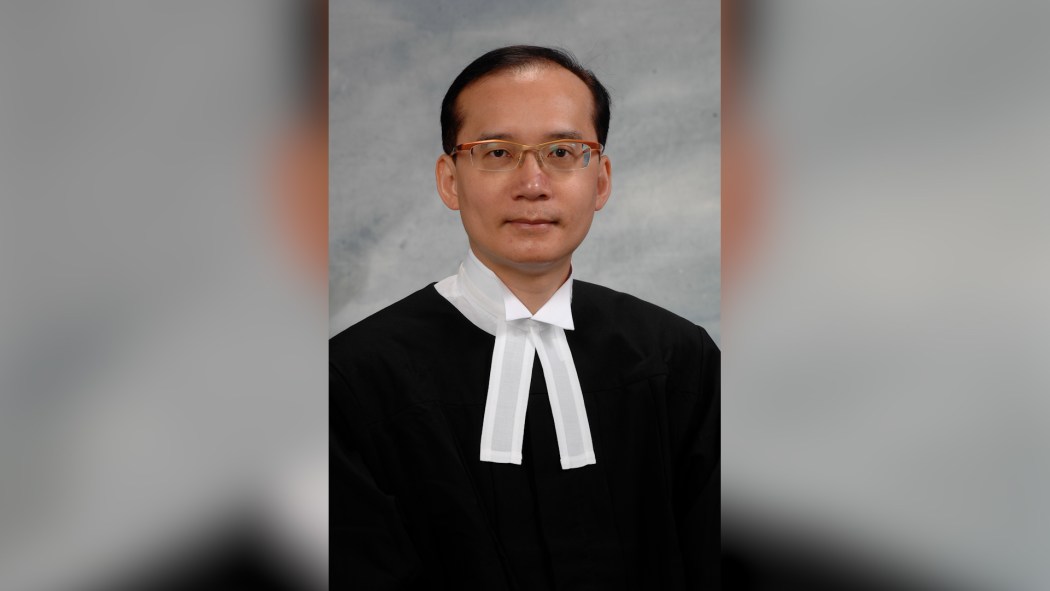The prosecutor in the national security case against the organiser of Hong Kong’s Tiananmen candlelight vigils may have to disclose information it had redacted “in the public’s interest” after the defence claimed that such redactions would make it “simply impossible” to conduct a fair trial.
The trial of the case involving three former standing committee members of the Hong Kong Alliance in Support of Patriotic Democratic Movements of China resumed at the West Kowloon Magistrates’ Courts on Tuesday.

Former vice-chairperson of the Alliance, Chow Hang-tung, and two of the defunct group’s standing committee members, Tang Ngok-kwan and Tsui Hon-kwong, stand accused of “failing to comply with [a] notice to provide information” issued by the national security police last August. They were arrested and charged last September.
The national security law stipulates that the police chief, upon approval from the security chief, has the power to serve a notice to a “foreign agent” requesting information, including activities and finances.
Principal Magistrate Peter Law ruled earlier this month on two preliminary issues: that the legality of the notice could be challenged in criminal court; and that the prosecution does not need to prove that the Alliance is a foreign agent.
Two other defendants in the case, Simon Leung and Chan To-wai, earlier pleaded guilty and were both sentenced to three months in prison.
Information redacted in ‘public interest’
Prior to the trial, Chow requested that the prosecution disclose which foreign organisations or countries the Alliance was allegedly working for.
Claiming that disclosing such information would “harm public interest,” the prosecution applied for Public Interest Immunity (PII), which would allow it to refrain from disclosing the information.

In May, Law ruled that the prosecution had to hand over files – including search warrants, reports, and production orders – to the defence, but details, including the name of the officer who applied for the warrants, could be redacted. A month later, the magistrate denied a further request from Chow for more information.
The prosecution on Tuesday, led by Acting Deputy Director of Public Prosecutions (Special Duties) Anthony Chau, called in the trial’s first witness, Hung Ngan, who is now an acting senior superintendent of the national security police.
According to Hung’s testimony, he oversaw the police investigation into the Alliance, and recommended that the commissioner of police issue a notice to the defunct group after obtaining a report on the Alliance and its ties to other organisations. Hung said he sought approval for the notice from then secretary for security John Lee.
Hung also said that police had a reasonable belief that the Alliance was a foreign agent, and that it was necessary to issue the notice for the investigation and to prevent the occurrence of offences endangering national security.
Hung also confirmed to Law that six organisations and one individual were mentioned in the report, but did not name any.
Fair trial ‘simply impossible’
Before the defence began its cross-examination, Chow, who was representing herself in court, said that it would be difficult for the defence to conduct cross examination when the witness referred to paragraphs which were “heavily redacted.”
The barrister argued that while Law had ruled earlier this month that the prosecution did not have to prove that the Alliance was, as a matter of fact, a foreign agent, the defence could still raise the matter as a factual issue.

Barrister Esmond Wong, who represented Tang, said it would be “simply impossible” for the defendants “to have any fair trial.”
“With all this redacted information, it is not possible for the defence to have any meaningful or fair defence to challenge whether such a belief is reasonable in the first place,” Wong said.
The prosecutor, however, said that the defence should still be able to conduct its cross-examination and that he “cannot see the difficulty” for the defence to conduct their line of argument.
Chau said that while the prosecution did not disclose the identity of the foreign organisations, they provided “some connection” between the groups and the Alliance.
Wong refuted Chau’s argument, and said that it was the prosecution’s duty to prove that the facts behind the belief held by the police were correct.
Following submissions from the prosecution and the defence, Law said that the prosecution did not have to give him “the details,” but had to at least prove that “there must be some basis” for the police to form the beliefs held in the report.
After an almost three-hour break, Chau said that materials related to the organisations and individual – apart from those related to the Alliance – were all under the PII, and that the prosecution needed more time to review what redacted information could be disclosed to help the defence.
Following Chau’s submission, Law adjourned the trial to Thursday.
Correction 29/08/2022: A previous version of this article incorrectly stated that, upon approval from the justice secretary, the police chief can serve a notice requesting information from a “foreign agent.” In fact, the police chief must obtain approval from the security chief to issue such a notice. We regret the error.
Support HKFP | Policies & Ethics | Error/typo? | Contact Us | Newsletter | Transparency & Annual Report | Apps
Help safeguard press freedom & keep HKFP free for all readers by supporting our team
























